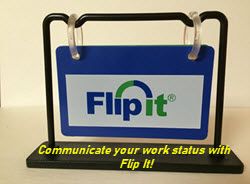
Do you need a good reason to change your job? Have you been considering moving on for some time now? This article will present you with 10 practical reasons for job change. Maybe a few of them might hit home with what you have been thinking about these days.
In this day and age, not many people stay in their same job for years until retirement. If they do, then they are probably fairly content with their position and relatively happy with their paycheck. They also might be fairly close to retirement and don’t really feel like moving on and starting over.
Gallup found that 60% of millennials say they are open to a different job opportunity — 15 percentage points higher than the percentage of non-millennial workers who say the same.
Millennials: The Job-Hopping Generation
Moving into a new position at a new company can certainly lead to a number of issues that might not make it worthwhile. Having to get to know the new working environment and who are the great coworkers you can confide in and trust and who are the bad seeds. Office politics in the new company can also be a drag.
But if you’ve had enough and are excited about moving onto a new challenge you certainly have your good reasons. If you’re tired of exhausting your list of calling out of work text messages and want to find an exciting new opportunity, you certainly deserve to do so.
So, let’s look into a list of 10 acceptable reasons for job change.
10 Practical Reasons for Job Change
1. Enhanced Compensation
LinkedIn surveyed 4873 people in 2021 and the #1 reason to leave their current job was compensation. It’s no wonder that compensation is the #1 factor or reason for job change. This may not only include salary but there may be a sign-on bonus associated with the new position.
2. Better Opportunities (Best Reason for Job Change)
Limitations in opportunities to move up within a company can certainly be one of the major factors to move to another one. If you are a motivated individual who seeks to move ahead and it doesn’t appear there are any opportunities to do so, moving on to another company might be just what the doctor ordered.
The new position might be just the promotion you’ve been looking for and there may be many other opportunities to move ahead within the new company. A better opportunity might just be the best reason for job change.
3. Toxic Boss
There is nothing more unnerving than working for a toxic boss. You’ve certainly witnessed the obvious toxic boss signs. Every day is a challenge and the workdays seem to get longer and longer. It could be that your boss thinks you are trying to steal his job.
There are tell-tale signs your boss is threatened by you such as being quick to criticize you, micromanaging your work, and belittling your accomplishments. You’ve also sensed obvious signs coworkers are intimidated by you.
It could also be a situation when your boss makes you feel incompetent and you just don’t want to deal with that any longer. You feel there is no way to resolve the situation other than looking for a job change. If he is treating you badly it could also be one of the subtle signs your boss is leaving the company for greener pastures.
It might even be within the same company but your preference is to get as far away from your boss as possible. Having a toxic boss just might be the best reason for a job change.
4. Work-Life Balance

Your current working situation is very rigid and the company doesn’t seem to value work-life balance. You have friends who work for companies that value their employees so much that they are very flexible when it comes to their family situation.
You feel that there is a much better job situation out there that will be caring when it comes to balancing your home life and work life. You decide it’s finally time to look around for a company that prioritizes the needs of the employees.
5. Ability to Work Remotely
Your company is very rigid when it comes to remote working. During the COVID crisis, the company had no other choice but to allow employees who could do so, to work from home. Basking in the glory of the benefits of remote working was amazing even under the circumstances. Now that the crisis is over the former rigid policies are being strictly enforced.
You’ve been looking at LinkedIn job opportunities and you are amazed at how many job postings are remote jobs. You decide to put yourself out there for a full-time remote position so that you can save on your commute, wear and tear on your car, and wear and tear on your body. You feel this is a really good reason for changing jobs.
6. Better Benefits
Your current position is with a company that doesn’t have the best benefits. What you have to lay out for health and dental insurance is taking up a lot of your paycheck.
You do have a matching 401K but the company only matches 2% of what you save. There also is no vision plan to help offset your annual eye appointments, glasses, and contacts.
You have friends who work for other companies that have far greater benefits than what your company offers. You decide it’s time to start looking around and you feel this is a great reason to change your job.
7. More Stable Company
You are currently working for a company that is very volatile as far as annual revenue is concerned. The stability of the company is very dependent on certain market conditions.
As the market changes there have been regular periods of layoffs and you have been able to escape being one of those workers who lost their job.
You think it’s time to start looking for a company that isn’t as dependent upon certain market conditions and is much more stable. You feel this is one of the many good reasons for job change.
8. More Exciting Projects and Duties
Every day for you is a slog in your current position. You’ve been assigned menial tasks and projects which require no brainpower at all. There is nothing for you to look forward to each workday. You’ve even gone so far as Google-searching “How to Make the Workday go by Faster“.
You decide to yourself it’s time to move on from your current position to a new and exciting position that will engage your mind, analytical skills, and grow your career.
9. Enhanced Training Opportunities
If you are a motivated person, you want to learn new skills, not only for your education but also to become more marketable as an employee. Some companies don’t pay for courses that can help you broaden your knowledge while others will pay the freight 100%.
If your current company doesn’t invest in its employees by way of seminars and coursework, you may want to move on to a company that will.
10. Fewer Physical Demands
You are getting a little older and your current position is becoming physically challenging. You find that your body aches after a full day of work and decide it might be time to find a job that is less physically demanding.
You think that applying for more of a desk job makes sense at this time of your life. You like the company you are working for but have seen several job postings that would not only challenge you mentally but would be less demanding physically. This is one of the many reasons for changing jobs within the same company.
How to Explain Leaving a Job to a Potential Employer
In the interview process, you are going to be asked for your reasons for wanting to leave your current employer. It is important to know ahead of time specifics of what you want in your job and what the interviewer could ask.
1. Make a List of Reasons for Wanting to Leave Your Job
Take some time and list as many reasons as you can why you want to leave your current company. Try to scope out your 5 and 10 year goals. This will crystallize how your current job won’t allow you to meet those goals and how the potential employer could.
When you are asked the question as to why you want to leave your current employer try not to make it too personal. If your boss is toxic and this is the main reason for your job search, don’t harp on this.
Make it more about the opportunity, career growth, and how the potential employer would be more aligned with your 5 and 10 year goals.
2. Set a Positive Tone
You certainly don’t want to demean anyone within your current company so keep the mood upbeat. Talk more about how you are excited about the opportunity at hand and that you relish the opportunity to expand the scope of your skills in the new position.
3. Limit your Responses
Try not to base the reasons you want to leave your current position on compensation. Just saying you are bored at your current job won’t make a good impression. Make it more about growing your career and how the job description of the new position is attractive to you.
List out the duties of the job posting and how you will meet those responsibilities. Not only that but how you are looking forward to learning new skills to enhance your value within the hiring company.
As long as you are genuine, positive, and clear about the reasons for job change, the potential new employer should be able to evaluate your viability in the new position.
If you follow these tips then hopefully you’ll start to get signs you got the job in the interview and can look forward to your new position.
What to Read Next:
- How to Make the Workday Go Faster
- What Does a 2nd Interview Mean? [and Ten 2nd Interview Tips]
- What to Bring on Your First Day of Work – 22 Essential Items
- 36 Good Excuses to Miss Work on Short Notice [Remote & On-Site Workers]
- 20 Good Excuses to Get Out of Work [Non-Remote Workers]
- How to Simulate Natural Light in a Windowless Office
Bob has been blogging for over 20 years and has been an office and cubicle dweller for more than 35 years. He has been featured in numerous online publications such as US News and World Report, Bustle, and Work Awesome (you can read his articles here). He created the popular office website CubicleBliss in January 2011 and rebranded it as WorkspaceBliss in April 2020.
In the office he’s been an IT Manager, Applications Engineer, Systems Analyst, Software Project leader, and Programmer Analyst in his long career. He’s a Certified Microsoft Professional and possesses a Masters of Science degree and two Bachelor of Science degrees, one of those in Informational Technology.
During his career he has worked in the office full-time, as a hybrid remote worker, and has worked from home permanently.





